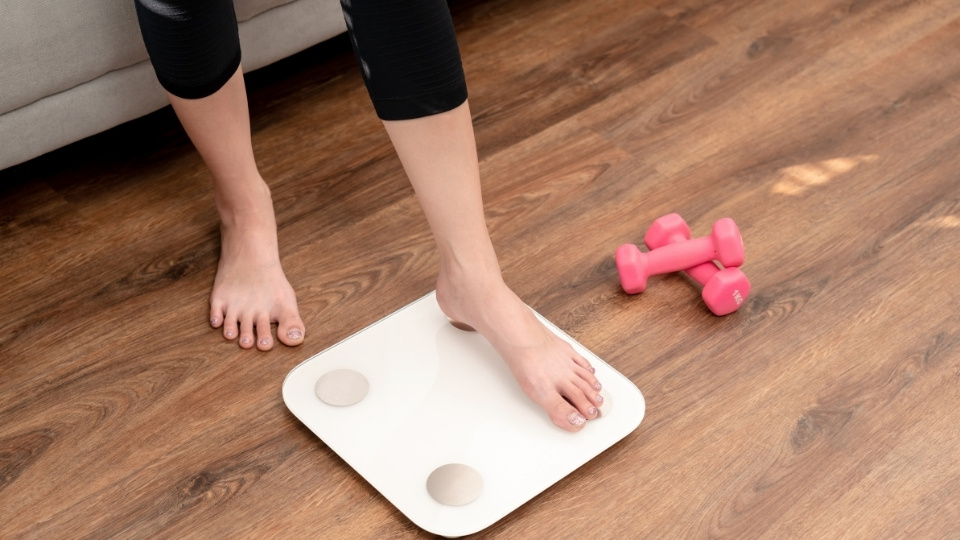
When you start a weight loss journey, the initial results often come quickly. You see the numbers on the scale drop, your clothes fit looser, and you feel better in your body. However, after a while, progress may slow down or even stall—this is what’s known as a "weight loss plateau". This stage, though common and sometimes frustrating, is entirely normal.
What is a Weight Loss Plateau?
A weight loss plateau happens when, after a period of weight loss, the results stop progressing. Your body, which constantly adapts to its environment, enters a stabilization phase. Initially, it burns more energy to adjust to changes, but over time, it seeks balance. It’s like a thermostat that regulates itself to maintain a stable temperature. While this slowdown can feel discouraging, it’s just your body taking time to adjust to new conditions.
Why Do We Hit a Plateau, and How Can We Overcome It?
Several factors contribute to reaching a plateau in your weight loss journey:
1. Metabolism Slows Down
Think of your metabolism as an engine that burns calories to keep your body running. As you lose weight, this engine works a bit slower because it has less "fuel" to burn. The more weight you lose, the fewer calories your body needs for daily functions (1). Therefore, your daily energy needs should be adjusted accordingly.
Adjust Your Calorie Needs
It's important to remember that too much calorie restriction and rapid weight loss could further slow down your metabolism (2). A dietitian can help you recalculate your calorie intake to match your new metabolism with a personalized meal plan and ensure you’re still on track.
Eat Enough Fibre
Fibers help with satiety, slows digestion, and stabilizes blood sugar levels. Additionally, fibre-rich foods are lower in calories for the same volume while keeping you feeling fuller. For example, a bowl of vegetables contains far fewer calories than a bowl of chips, while taking up more space in the stomach (3). Aim for between 25 and 50 grams of fibre per day to fully benefit from its health and satiety advantages.
Change Up Your Exercise Routine
If you’ve been doing the same exercises for a while, your body has likely adapted to them. Try incorporating new types of exercises, such as strength training or interval workouts, to boost your metabolism. You can also gradually increase the intensity while respecting your limits (3). For example, adding a few minutes of cardio, increasing weights slightly, or shortening rest times can restart weight loss without overworking your body. An adequate level of physical activity is definitely an asset for overcoming this plateau.
2. Muscle Loss
When losing weight, you lose both fat and muscle. However, muscle plays a key role in burning calories, so less muscle means fewer calories burned, which may explain weight stagnation (1).
Prioritize Protein
Protein helps preserve muscle mass and requires more energy to digest, which increases the calories burned (4). To meet your daily needs, adopt a protein-rich diet by incorporating protein-rich foods into each meal.
3. Stress and Sleep
Lack of sleep or high stress levels can hinder weight loss. These factors affect hormones that regulate appetite and weight management, such as cortisol, making the process more difficult (5).
Manage Your Stress and Sleep
Take care of your mental well-being as much as your body. Set aside time to relax and get enough sleep. Meditation or walks are good strategies to manage stress.
3. Emotions and Motivation
Plateaus can also affect the mental and emotional side of weight loss (6). During these periods, it’s common to feel doubts or a drop in motivation. Successes seem minimized, and failures feel amplified.
Address Your Emotions and Motivation
The key is to acknowledge these emotions without letting them discourage you. Remember that weight loss is a long process with ups and downs. Focus on other progress, such as your fitness or energy levels, to stay motivated.
4. Challenges of Creating and Maintaining New Habits
Adopting and maintaining healthy lifestyle habits can become challenging over time. Your eating or workout routine may start to feel restrictive, and events like holidays can disrupt your progress.
Make New Habits Sustainable
The key is to stay flexible and prioritize what matters most. If you're short on time, focus on simple but effective actions, like a 30-minute workout or increasing your veggie intake. Rather than aiming for perfection, choose food and exercise habits that fit your daily life, and don’t feel guilty if you need to adjust your goals temporarily.
Why Is Regular Follow-Up with a Dietitian Essential?
At TeamNutrition, personalized follow-up with a dietitian is a valuable asset for adopting healthy eating habits and achieving lasting weight loss. These regular consultations provide motivation, stage-appropriate adjustments, and strategies to overcome plateaus. A professional dietitian can also help you anticipate and manage challenging times, such as holidays, without compromising your long-term health goals and weight maintenance. Having professional support allows you to adapt your eating habits and stay on track.
The Plateau: A Normal and Surmountable Step
Weight loss plateaus are normal and surmountable. They indicate a natural slowdown, but with appropriate adjustments and the support of a health professional, such as a dietitian, you can continue progressing. Book an appointment with a dietitian today to move forward with your health goals!
References
- Trexler, E.T., Smith-Ryan, A.E. & Norton, L.E. Metabolic adaptation to weight loss: implications for the athlete. J Int Soc Sports Nutr 11, 7 (2014). https://doi.org/10.1186/1550-2783-11-7
- Martins, C., Roekenes, J., Gower, B.A. et al. Metabolic adaptation is associated with less weight and fat mass loss in response to low-energy diets. Nutr Metab (Lond) 18, 60 (2021). https://doi.org/10.1186/s12986-021-00587-8
- Ramage, S., Farmer, A., Eccles, K. A., & McCargar, L. (2014). Healthy strategies for successful weight loss and weight maintenance: a systematic review. Applied physiology, nutrition, and metabolism = Physiologie appliquee, nutrition et metabolisme, 39(1), 1–20. https://doi.org/10.1139/apnm-2013-0026
- Leidy, H. J., Clifton, P. M., Astrup, A., Wycherley, T. P., Westerterp-Plantenga, M. S., Luscombe-Marsh, N. D., Woods, S. C., & Mattes, R. D. (2015). The role of protein in weight loss and maintenance. The American journal of clinical nutrition, 101(6), 1320S–1329S. https://doi.org/10.3945/ajcn.114.084038
- Papatriantafyllou, E., Efthymiou, D., Zoumbaneas, E., Popescu, C. A., & Vassilopoulou, E. (2022). Sleep Deprivation: Effects on Weight Loss and Weight Loss Maintenance. Nutrients, 14(8), 1549. https://doi.org/10.3390/nu14081549
- Pigsborg, K., Kalea, A. Z., De Dominicis, S., & Magkos, F. (2023). Behavioral and Psychological Factors Affecting Weight Loss Success. Current obesity reports, 12(3), 223–230. https://doi.org/10.1007/s13679-023-00511-6





